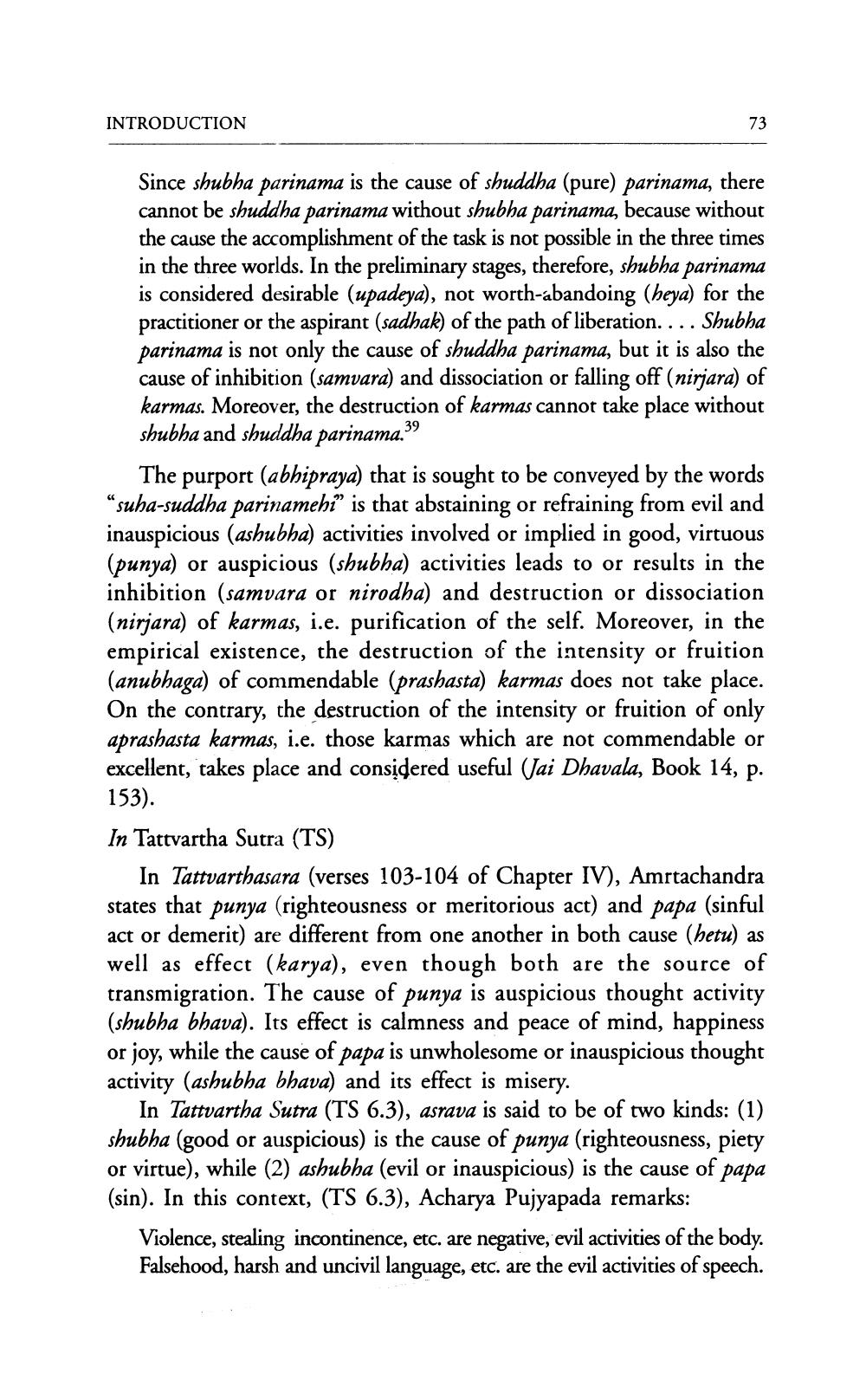________________
INTRODUCTION
73
Since shubha parinama is the cause of shuddha (pure) parinama, there cannot be shuddha parinama without shubha parinama, because without the cause the accomplishment of the task is not possible in the three times in the three worlds. In the preliminary stages, therefore, shubha parinama is considered desirable (upadeya), not worth-abandoing (heya) for the practitioner or the aspirant (sadhak) of the path of liberation.... Shubha parinama is not only the cause of shuddha parinama, but it is also the cause of inhibition (samvara) and dissociation or falling off (nirjara) of karmas. Moreover, the destruction of karmas cannot take place without shubha and shuddha parinama.39
The purport (abhipraya) that is sought to be conveyed by the words "suba-suddha parinameh?” is that abstaining or refraining from evil and inauspicious (ashubha) activities involved or implied in good, virtuous (punya) or auspicious (shubha) activities leads to or results in the inhibition (samvara or nirodha) and destruction or dissociation (nirjara) of karmas, i.e. purification of the self. Moreover, in the empirical existence, the destruction of the intensity or fruition (anubhaga) of commendable (prashasta) karmas does not take place. On the contrary, the destruction of the intensity or fruition of only aprashasta karmas, i.e. those karmas which are not commendable or excellent, takes place and considered useful (Jai Dhavala, Book 14, p. 153).
In Tattvartha Sutra (TS)
In Tattvarthasara (verses 103-104 of Chapter IV), Amrtachandra states that punya (righteousness or meritorious act) and papa (sinful act or demerit) are different from one another in both cause (hetu) as well as effect (karya), even though both are the source of transmigration. The cause of punya is auspicious thought activity (shubha bhava). Its effect is calmness and peace of mind, happiness or joy, while the cause of papa is unwholesome or inauspicious thought activity (ashubha bhava) and its effect is misery.
In Tattvartha Sutra (TS 6.3), asrava is said to be of two kinds: (1) shubha (good or auspicious) is the cause of punya (righteousness, piety or virtue), while (2) ashubha (evil or inauspicious) is the cause of papa (sin). In this context, (TS 6.3), Acharya Pujyapada remarks:
Violence, stealing incontinence, etc. are negative, evil activities of the body. Falsehood, harsh and uncivil language, etc. are the evil activities of speech.




